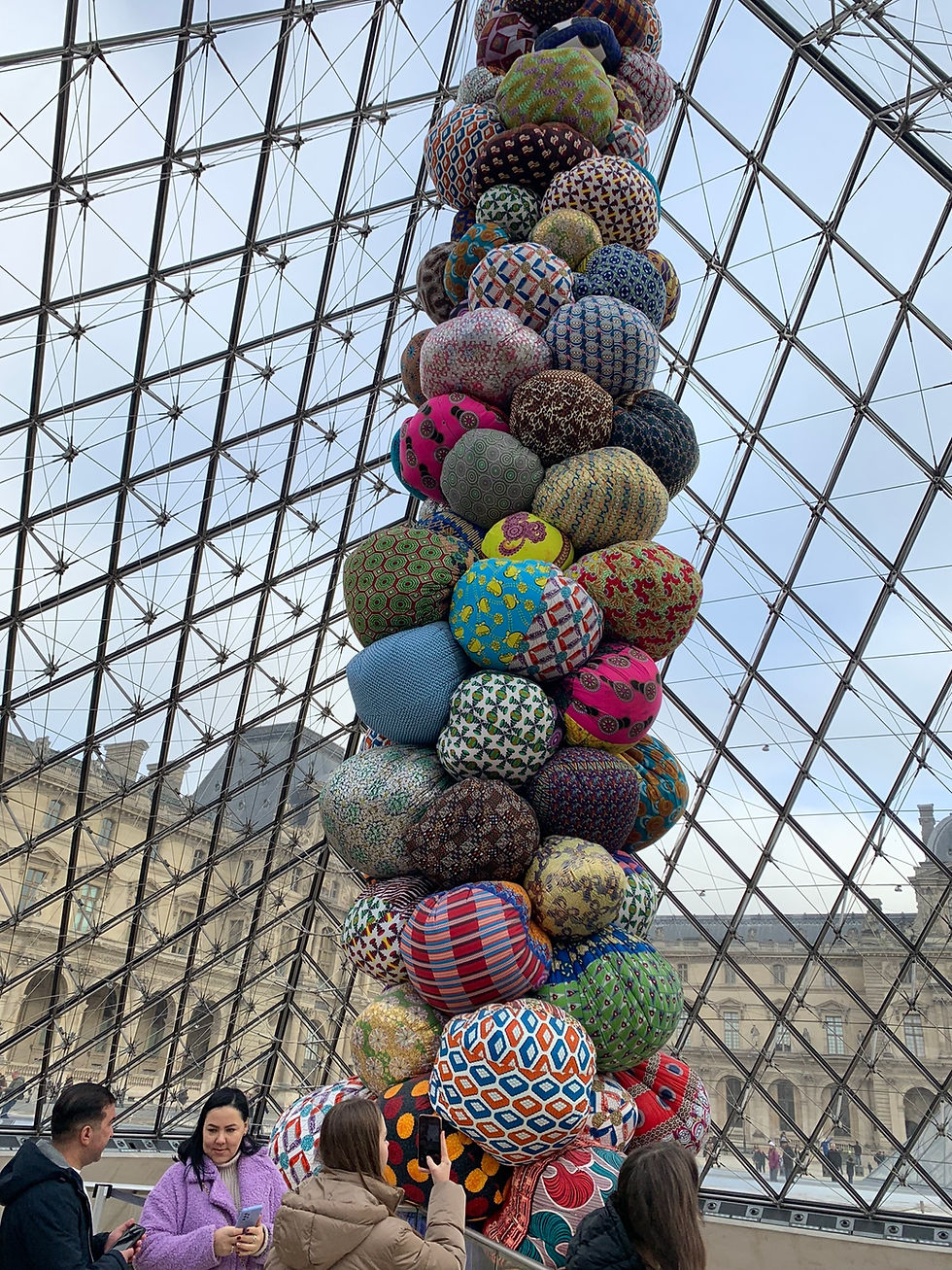Newsletter 65: Christmas in Israel
- leon gork tour guide

- Dec 25, 2007
- 4 min read

Shalom everyone,
Christmas holidays pass here without even a notice.
Israeli TV found the unusual and highlighted it by informing us that there are some Israelis who celebrate Christmas, even though they're not Christians. They showed us some shops selling Christmas goods in Rishon Letzion, a town near Tel Aviv inhabited by many new immigrants from the erstwhile Soviet Union.
Apparently the Russian immigrants are great Christmas celebrators. One woman interviewed happily told the TV that she didn't consider herself Christian but she was just carrying on a custom they practiced and enjoyed in the country she came from; Ukraine, Belarus, Lithuania, I can't remember which.
They also showed the famous Arab, Christian neighborhood of Haifa, known as Wadi Nisnas because it's a popular tourist attraction for Jewish Israelis over the Christmas holidays. Most people here don't have holidays; only private Christian schools and Christian owned businesses, but they crowd into Wadi Nisnas on Shabbat, when everyone's on holiday.
We have many areas of Israel inhabited by Christians, like Nazareth, Cana and the Christian parts of the Old City of Jerusalem, but Wadi Nisnas is different because it, is considered a real part of Israel. The Old City of Jerusalem only became part of Israel in the 6 day's war of 1967 and Nazareth, Cana and Wadi Nisnas in 1948 like everywhere else in Israel.
Nevertheless Wadi Nisnas is considered more Israeli because Jews and Arabs have lived there in absolute harmony since long before the war of Independence in 1948. The people or Haifa have taken Wadi Nisnas to their hearts and are proud that it's part of their city. They don't go there the way they go to Jerusalem or Nazareth or Cana. They feel at home in Wadi Nisnas. Israelis visit the Old City of Jerusalem as tourists to a strange city in a foreign land. They visit Wadi Nisnas as you would enter another room of your house; it's one of their own neighborhoods.
I first encountered Wadi Nisnas in a book written by Sami Michel who emigrated from Baghdad in the 1950's and became one of Israel's most important writers. I read Trumpet in the Valley about an immigrant Russian trumpet player who finds a place to live in an Arab family's home in Wadi Nisnas. I recommend this reading for a great picture of Arab Israeli culture.
It's also worth mentioning that Emile Habibi, a Palestinian political leader and a great Palestinian author also lived in Wadi Nisnas. I mention him because he was the only prominent Arab leader to support the UN Patitition Plan of 1947. In 1990 Habibi received the Al-Quds Prize from the PLO, while two years later he received the Israel Prize. His willingness to accept both reflected his belief in coexistence.
Today I'm off to the Dead Sea and the Galilee with my present tour group, a couple from Atlanta. We'll be staying at Kibbutz Ein Gedi by the Dead Sea and at Nof Ginossar by the Sea of Galilee.
Last night my friends nearly ended up without Christmas Dinner but Black Steer Steak House appeared, as if from nowhere to save the evening, at the side of the road as we were making our way back to Jerusalem after a day in Tel Aviv.
Many people come to Israel in search of authentic Jewish food and are a little disappointed that instead of what they think of as Jewish food turns out to be Morraocan, Kurdish, Russian or Polish, according to the origin of the people making the food. As far as I know there are only three authentic Jewish foods, namely; Haroset, a paste-substance we make on Passover to represent mortar, Matza and Tsholent.
Tsholent developed because on the one hand, in Judaism it's forbidden to kindle fire on the Sabbath and on the other hand the people desire to eat hot food on the Sabbath, in fulfillment of the precept that Sabbath should be joy and not suffering. The solution is light the oven and place the food in it on Friday afternoon, before the beginning of Sabbath and open the oven only on the Sabbath for the midday meal. The result is tsholent.
The tsholent experts in our family are my daughter in law Sigalit and my mother in law Pnina. Now Avishai, the cook is learning how to make tsholent from his grandmother.
Food, like all pleasures in life has its upside and its downside; like all physical pleasures even though we suffer dire consequences we keep indulging in them; every week I eat tsholent and every week I, literally explode. Thsolent turns me into a walking bomb; nevertheless I keep coming back for more. Every week I smoke my cigar and my head reels but I try not to miss the pleasure it gives me.
Obviously I get the most pleasure from guiding tourists through Israel especially doing my walking tours of the Old City. It always puts me in a good mood and gives me renewed energy. `
Wishing you a great no news day
Yours truly
Leon









Comments